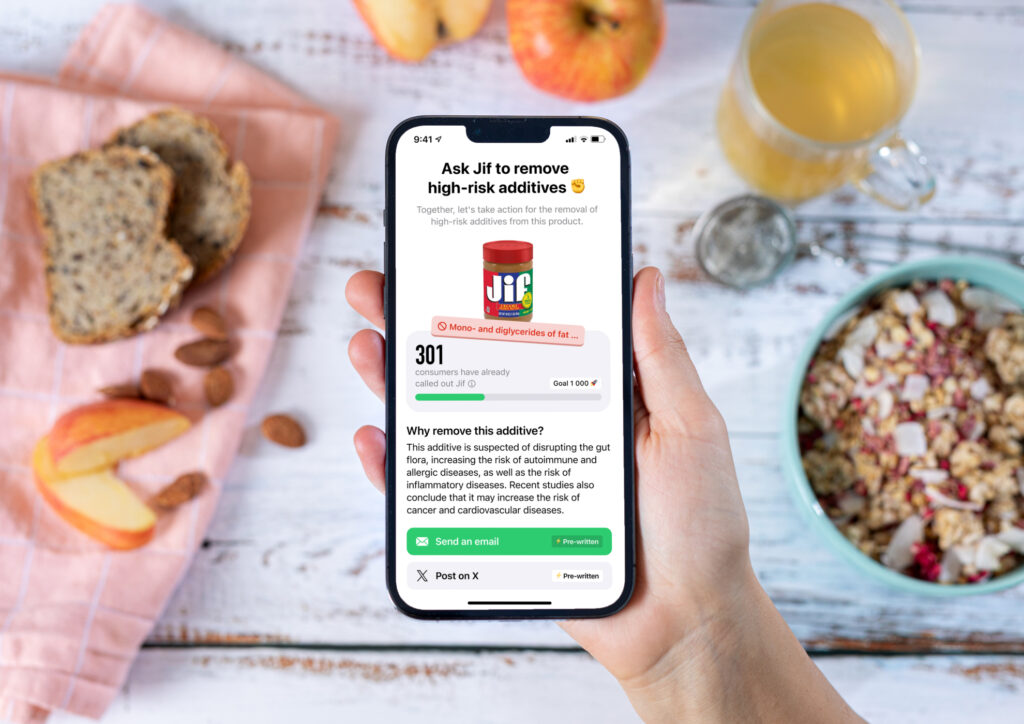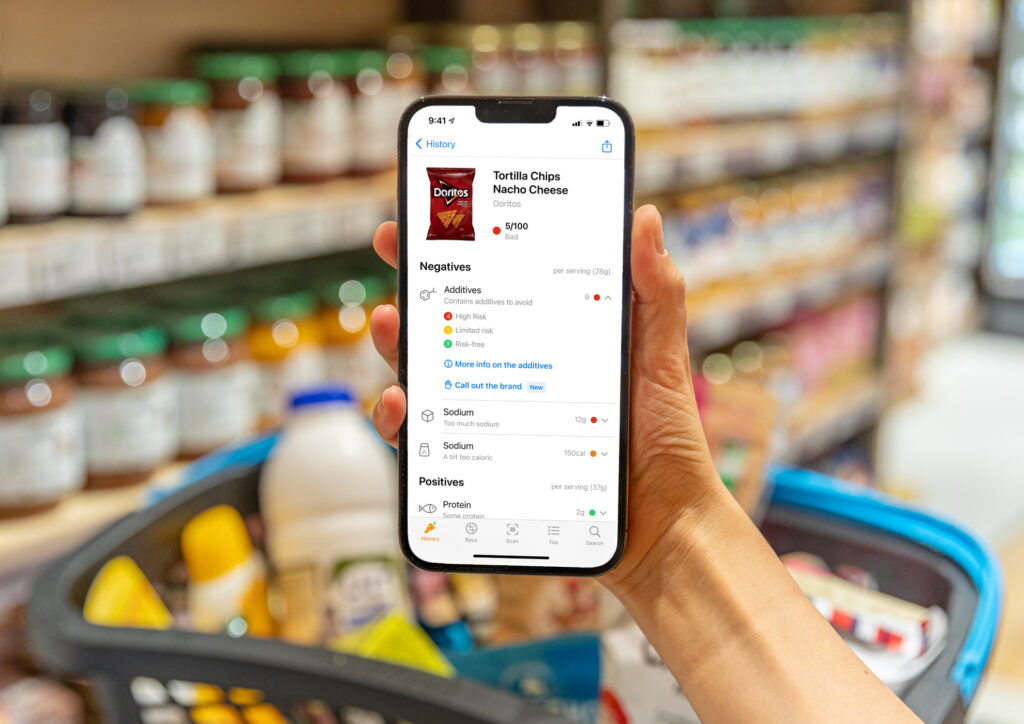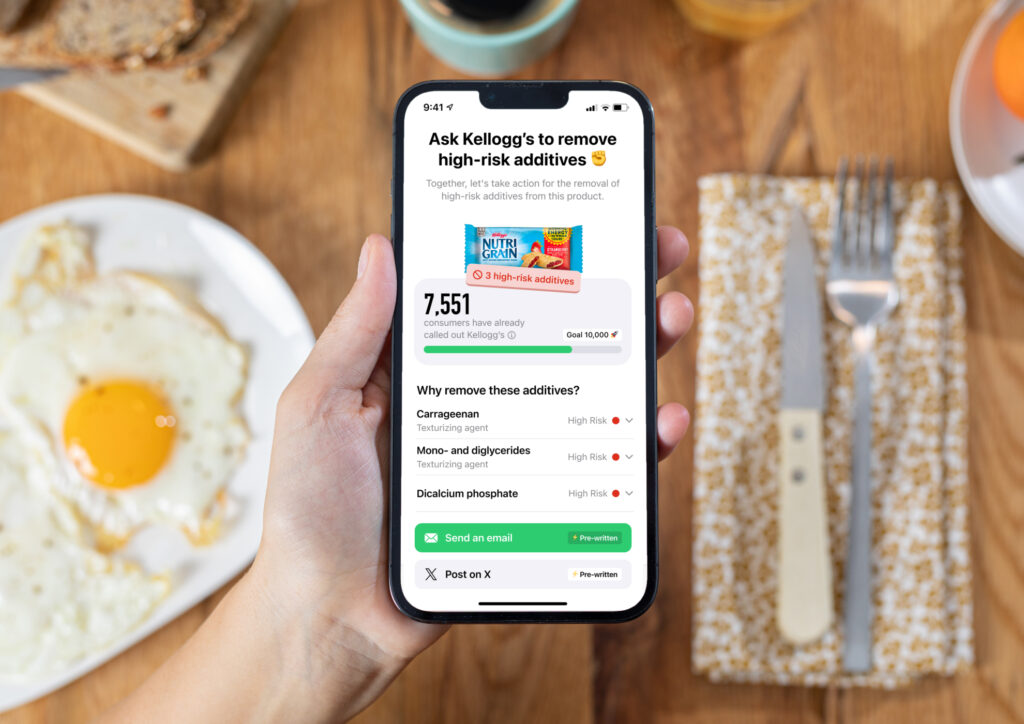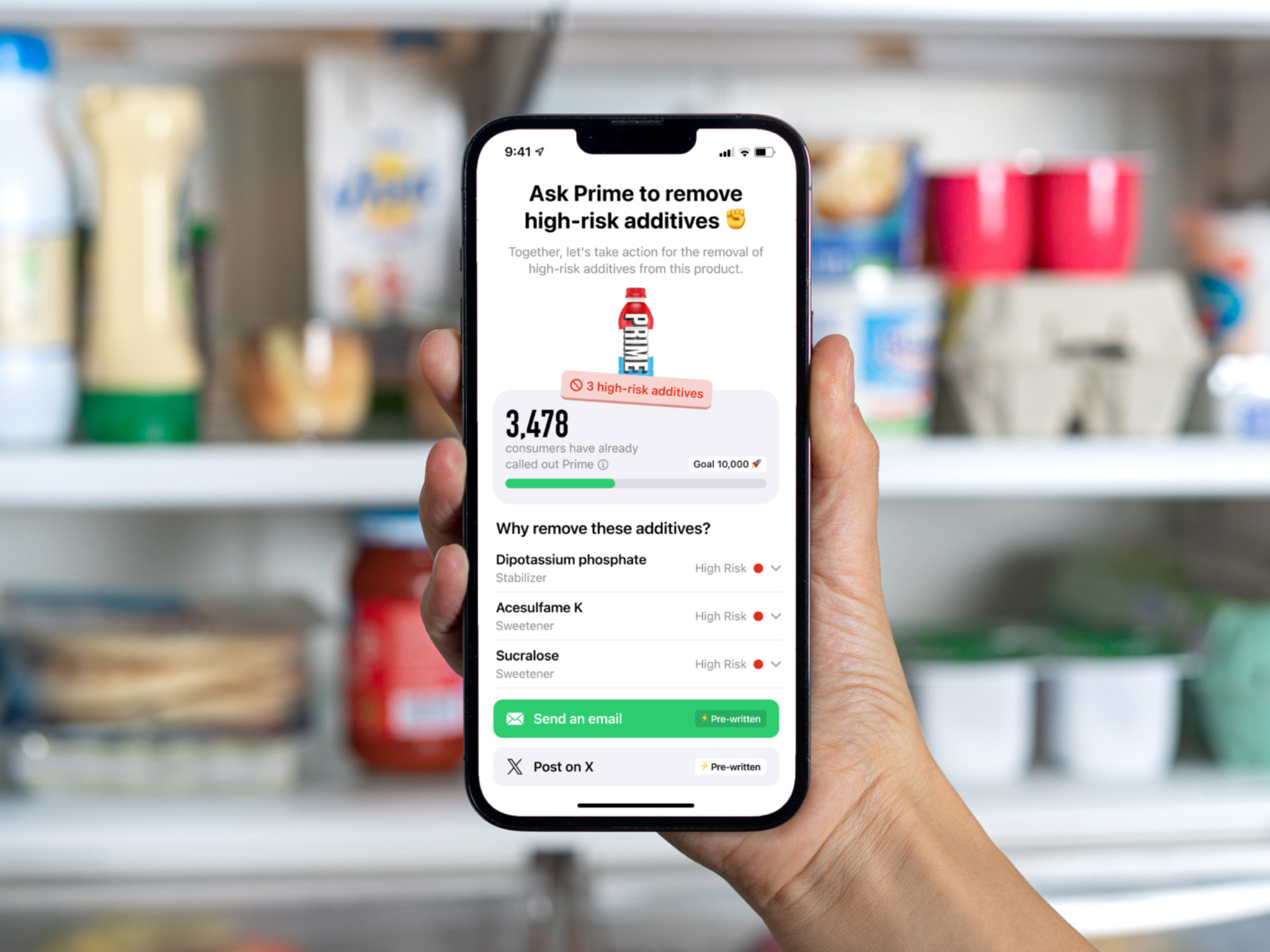Product Scanning App Yuka Now Lets Users Complain to Companies About Problematic Ingredients
4 Mins Read
Popular product scanning app Yuka has rolled out a new feature that allows users to hold food companies accountable for questionable ingredients.
For years, Parisian startup Yuka has been a platform for consumer transparency and education, enabling users to be better informed about the products they buy. Now, it is turning them into agents of change.
One of the top free health and wellness apps on the Apple App Store, it allows people to scan food products and view potentially hazardous additives in them. A new Call-out feature adds to this, letting members of the public directly challenge brands on the use of these ingredients.
“More and more of us are refusing to accept harmful additives in our food,” said Yuka co-founder and CEO Julie Chapon. With the new tool, users will be able to “directly call out food brands using hazardous additives, and ask to remove them”, she explained.

Users can email or tweet at companies
The feature was introduced in November, targeting 81 “high-risk” additives to begin with. These ingredients, while permitted legally, have been identified in current scientific literature as posing an increased risk of health issues like cardiovascular disease, cancer, type 2 diabetes, and behavioural disorders.
Even though most manufacturers use these additives for legitimate functional reasons – like extending the shelf life, improving texture, or enhancing stabilisation – Yuka argues that it’s essential to eliminate them whenever possible, thanks to the “cocktail effect” (the interaction between multiple additives, even at low doses).
Additionally, repeated consumption of additives in different products could lead to exceeding the daily recommended values, particularly among vulnerable demographics like children.
The feature is currently present on 3,100 of the most frequently scanned brands, whose products contain at least one of the additives identified as hazardous. These include ingredients like dipotassium phosphate (commonly found in oat milk and cheeses), sucralose (the base of the flagship Splenda sweetener), and benzoic acid (used in energy drinks like Monster), among others.
Products containing one or more of these high-risk additives are marked by Yuka’s red label. Their pages now have a ‘Call out the brand’ button. Clicking on this would present two options. Users can directly ask the brand to consider reformulating the product via email, which is addressed to the company’s customer service team. The pre-written email contains information about the hazards of the additives, and the scientific sources – but they can be personalised too.
The second option involves a post on X (formerly Twitter), also pre-filled and including the hashtag #NotInMyProduct. This allows consumers to share their concerns with a wider audience, and encourages community engagement.
Yuka targets US with Call-out feature

Yuka’s brand is all about transparency – it posts its balance sheets on its website (last year, it recorded €3.8M in revenue), and its entire goal is to empower consumers to be better informed about the brands they buy from.
With the Call-out feature, too, there’s a tracker that counts the number of unique users who contact each brand, which is displayed once 10 emails or tweets have been sent. There’s a starting threshold of 100 callouts, which automatically moves to the next target as more people choose the option to contact the brands.
Yuka plans to update users on any changes that brands make as a result of these actions. It has a track record here: French retail giant Intermarché reformulated 900 products by removing 140 food additives to achieve better ratings on the app. The startup has also successfully petitioned the national government to reduce the amount of permitted nitrates in products like deli meat, a local staple.
But the impact of the Call-out could be even greater across the Atlantic, with US food regulations being less strict than those in Europe. “While our efforts in Europe have already encouraged some manufacturers to reformulate their offerings for the better, the task is even greater in the US,” said Chapon. “With this new feature, we can finally pick up the pace for change.”

A 2022 study found that 72% of American adults prioritise transparent product information and labelling when choosing brands to buy from, and Yuka’s own impact research this year revealed that 94% of US users stopped purchasing products flagged with hazardous additives on the app.
Yuka is used by 60 million people globally, with 68 products scanned every second. A quarter of these consumers are in the US, while one in three French people use the app – and it’s these two countries where the Call-out tool has been rolled out first. Additional markets will be added in the coming months.
“This new feature empowers users to go beyond avoiding harmful ingredients and actively drive the change they want to see in the marketplace,” said Chapon. “We are not just passive consumers. We have the right to demand that brands prioritise our health over their profits. Every single message makes a difference.”



